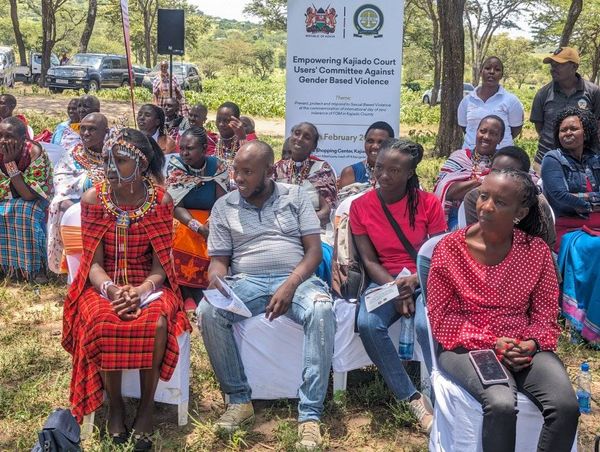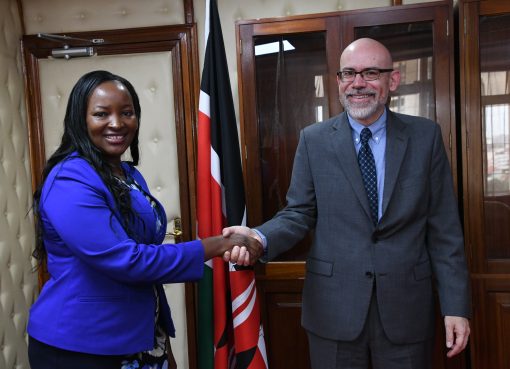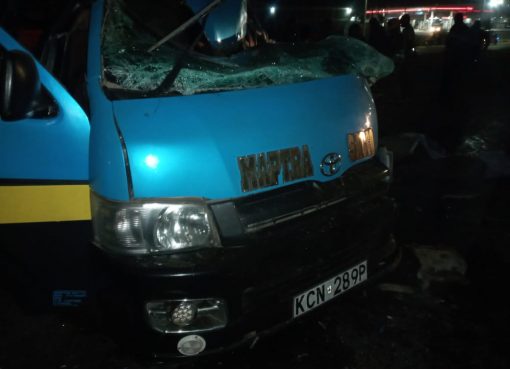Female Genital Mutilation (FGM) in Kajiado County is still rampant, despite the practice being outlawed in Kenya in 2011.
According to the Kenya Demographic Health Survey (KDHS) 2022, the prevalence of FGM in Kajiado County is at 63 per cent, with emerging trends such as medicalisation and cross-border practice of the vice contributing to the high numbers.
However, despite the high prevalence rate, no FGM cases have been reported and successfully prosecuted at the Kajado Law Courts since 2011.
Speaking at Enkorika, Kajiado Central, during a sensitisation forum on sexual and gender-based violence organised by the International Association of Women Judges (IAWJ) and Kajiado Court Users Committee, Roselyn Oganyo, Kajiado Chief Magistrate, revealed that there are currently zero active FGM cases at the Kajiado courts.
Oganyo noted that FGM is often carried out in secrecy; therefore, the culprits are never brought to court, and there are hardly any witnesses willing to testify, making it hard to prosecute the cases.
“There is very low reporting of FGM cases, the practice is deeply rooted in culture and done in secrecy. The perpetrators are never brought to court, with witnesses often bailing out for fear of reprisals by the community, “she said.
Pamela Achieng’, Senior Principal Magistrate, reiterated Oganyo’s sentiments, adding that FGM survivors are often denied justice as the cases are never brought to court.
She urged the community to report the cases to the police and authorities so that they are brought to court and perpetrators prosecuted.
“We encourage the community to take charge and report such cases so as to protect the girl child from this harmful practice. As a court, we do not see FGM cases in courts, but when you go to the rescue centres, you will find many girls who were mutilated and others who were rescued before being cut,” she added.
The magistrate warned that FGM was illegal in Kenya and is a criminal offence under the prohibition of the Female Genital Mutilation Act 2011, the Children’s Act, and the penal code.
“Any person who conducts FGM or pays someone else to conduct the practice or provides his or her premises for it to be carried out, is guilty of an offence. Failure to report the act and possession of instruments used in FGM is also a crime,” she noted.
Furthermore, a person convicted of these offenses can go to prison for between three and seven years, and be fined up to Sh500,000 Kenyan shillings.
Alex Labarakwe from the Witness Protection Agency said that the reason why these cases go unreported is because the people involved in this practice are either people from the government or parents of the victims, and because of intimidation and threats from them, members of the community choose not to take action.
According to Beatrice Oluoch, AMREF Health Africa, there is need to strengthen the reporting systems and the Witness Protection Agency so as to encourage the community to report FGM cases without fear of victimisation.
Oluoch said FGM is deeply rooted in culture, and witnesses fear reporting the cases to avoid being ostracised by the community.
“FGM is deeply rooted in culture, so there is a need to strengthen the witness protection agency to ensure that witnesses can report FGM cases without fear of victimisation by the community.” She said.
Oluoch further called for the adoption of the Alternative Rite of Passage (ARP), which retains cultural rituals and ceremonies in the transition to womanhood while replacing the harmful ‘cut’ by sexual and reproductive health rights education and the promotion of girls’ education.
By Rop Janet and Seline Nyangere





